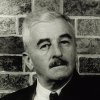“ The man and the citizen, whoever he may be, has no property to invest in society but himself, all his other goods belong to society in spite of himself, and when a man is rich, either he does not enjoy his wealth, or the public enjoys it too ”
Jean-Jacques Rousseau, Emile, or On Education (1762). copy citation
| Author | Jean-Jacques Rousseau |
|---|---|
| Source | Emile, or On Education |
| Topic | wealth society |
| Date | 1762 |
| Language | English |
| Reference | |
| Note | Translated by Barbara Foxley |
| Weblink | http://www.gutenberg.org/cache/epub/5427/pg5427-images.html |
Context
“Better a thousandfold the king of Corinth a schoolmaster at Syracuse, than a wretched Tarquin, unable to be anything but a king, or the heir of the ruler of three kingdoms, the sport of all who would scorn his poverty, wandering from court to court in search of help, and finding nothing but insults, for want of knowing any trade but one which he can no longer practise.
The man and the citizen, whoever he may be, has no property to invest in society but himself, all his other goods belong to society in spite of himself, and when a man is rich, either he does not enjoy his wealth, or the public enjoys it too; in the first case he robs others as well as himself; in the second he gives them nothing. Thus his debt to society is still unpaid, while he only pays with his property. "But my father was serving society while he was acquiring his wealth."”
source



